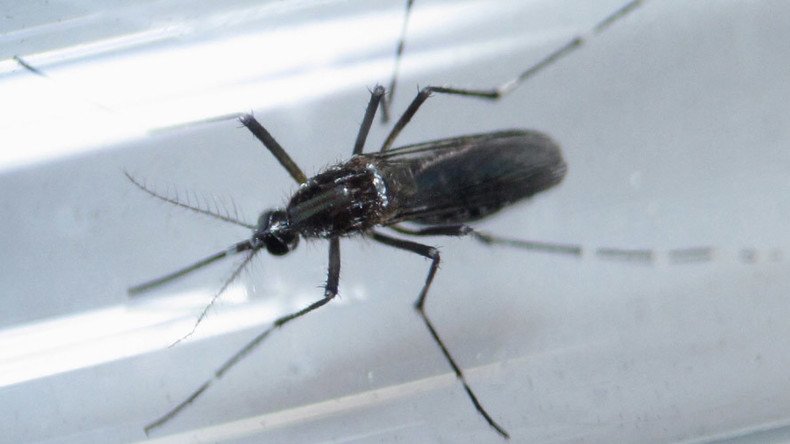Intl medical community urges WHO to ‘postpone or move’ Brazil Olympics over Zika threat

More than 150 health professionals have signed an open letter urging the WHO to “reconsider” its opinion and advise the IOC to postpone or even move the upcoming Olympic Games in Brazil to another country due to the spread of the Zika virus.
“WHO’s declaration of Zika as a 'Public Health Emergency of International Concern,' coupled with new scientific findings that underscore the seriousness of that problem, call for the Rio 2016 Games to be postponed and/or moved to another location – but not cancelled – in the name of public health,” the scientists wrote in a letter addressed to the World Health Organization and copied to the International Olympic Committee.
But WHO rejected the idea there was any real increase in the already present danger of Zika if the games weren’t moved.
“Brazil is one of almost 60 countries and territories which to date report continuing transmission of Zika by mosquitoes,” it wrote in a statement. "People continue to travel between these countries and territories for a variety of reasons. The best way to reduce risk of disease is to follow public health travel advice."
The current outbreak of the Zika virus began early 2015 in Brazil, then spread to other parts of South and North America. By February 2016, WHO declared the outbreak a Public Health Emergency of International Concern as evidence grew that Zika could cause birth defects and neurological problems.
Although Zika is a mosquito-borne virus, in late March, the Centers for Disease Control and Prevention warned that men diagnosed with the Zika virus should wait at least six months before having unprotected sex, as the virus remains active in semen.
Because the Brazilian strain of Zika virus harms “health in ways that science has not observed before,” the scientist estimate that some 500,000 foreign tourists are at risk. In an open letter, scientists argue that the Brazilian viral strain “causes microcephaly and probably Guillain-Barré syndrome.” They also claim that new studies of the virus show that it “is neurotrophic and causes cell death, it is biologically plausible that there are other as yet undiscovered neurological injuries, as exist for similar viruses.”
Because of the potential exposure to global tourists, scientists say those returning home could start a world-wide “endemic,” the risk of which makes it “unethical” to hold the games at this time.
“Should that happen to poor, as-yet unaffected places (e.g., most of South Asia and Africa) the suffering can be great. It is unethical to run the risk, just for Games that could proceed anyway, if postponed and/or moved,” the scientists stressed.
Stating that Brazil registered 120,000 “probable Zika cases”, and over 1,300 confirmed cases of microcephaly, with another 3,300 under investigation, scientist conclude that “while Zika’s risk to any single individual is low, the risk to a population is undeniably high,” especially considering that Rio de Janeiro has the second-highest number of probable Zika cases in the country which stands at 32,000 cases.
Furthermore the letter claims that Brazilian authorities so far have been unable to reverse the proliferation of the virus through their mosquito-killing program, arguing that the disease figures have gone up rather than down.
Invoking historical precedents of the canceled 1916, 1940, and 1944 Olympic Games, the letter says that it is not too late to prevent the virus exposure by rethinking the 2016 host city. Scientists write that “Rio’s health system is so severely weakened as to make a last-minute push against Zika impossible.”
Travelers should abstain from sex to avoid getting Zika - CDC https://t.co/I7MMKQEgKxpic.twitter.com/IX4YbxbXtM
— RT (@RT_com) February 6, 2016
The concerns voiced by the scientific community in the letter have preoccupied the organizers and WHO alike. So far Rio insists that it is save to hold the Olympic games, and is urging sports fans to visit the country.
Earlier this month, WHO chief, Dr. Margaret Chan, to whom the letter was addressed, said that while Zika remains a concern, she herself will be going to Brazil for the Olympic Games.
“You don't want to bring a standstill to the world's movement of people,” Chan said. “This is all about risk assessment and risk management.”
Chan reminded that WHO travel warning for pregnant women going to Brazil is still in place, as they fall in the higher risk category, and said that both Olympic athletes and travelers to Rio are being advised on appropriate measures to avoid being bitten by the mosquitoes.













